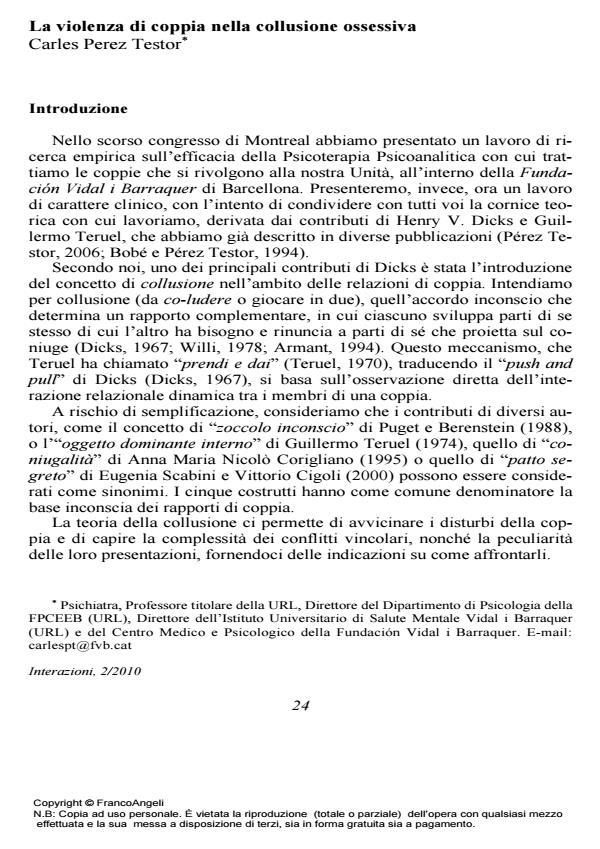Violence in the couple in the obsessive collusion
Journal title INTERAZIONI
Author/s Carles Pérez Testor
Publishing Year 2010 Issue 2010/2
Language Italian Pages 11 P. 24-34 File size 544 KB
DOI 10.3280/INT2010-002003
DOI is like a bar code for intellectual property: to have more infomation
click here
Below, you can see the article first page
If you want to buy this article in PDF format, you can do it, following the instructions to buy download credits

FrancoAngeli is member of Publishers International Linking Association, Inc (PILA), a not-for-profit association which run the CrossRef service enabling links to and from online scholarly content.
Testor We present various situations of aggression and violence based on clinical vignettes of couples’ psychoanalytical psychotherapy sessions. We shall explore the predominant type of collusion (Dicks, 1967), which manifested itself through projective identification between both individuals in the couple. We understand the term collusion (from co-ludere) as an unconscious agreement that leads to a complementary relationship in which each develops parts of himself or herself that the other cannot possess and gives up the parts that are projected onto the partner. The hypothesis of our study is that despite the fact that situations of aggression and/or violence are common in a couple’s everyday life; violence becomes more brutal mainly in obsessive collusions (Perez Testor, 2006). This collusion is based on relations involving reciprocal control, ambivalent provocations and inseparable dependence. Obsessive collusion helps us to grasp why it is so difficult for couples to change their relationship, thus perpetuating the destructive behaviour and conveying pathological patterns of interaction for future generations. In conclusion we propose coping techniques for these types of situations.
Keywords: Key words: obsessive collusion, generational transmission, projective identification
Carles Pérez Testor, La violenza di coppia nella collusione ossessiva in "INTERAZIONI" 2/2010, pp 24-34, DOI: 10.3280/INT2010-002003